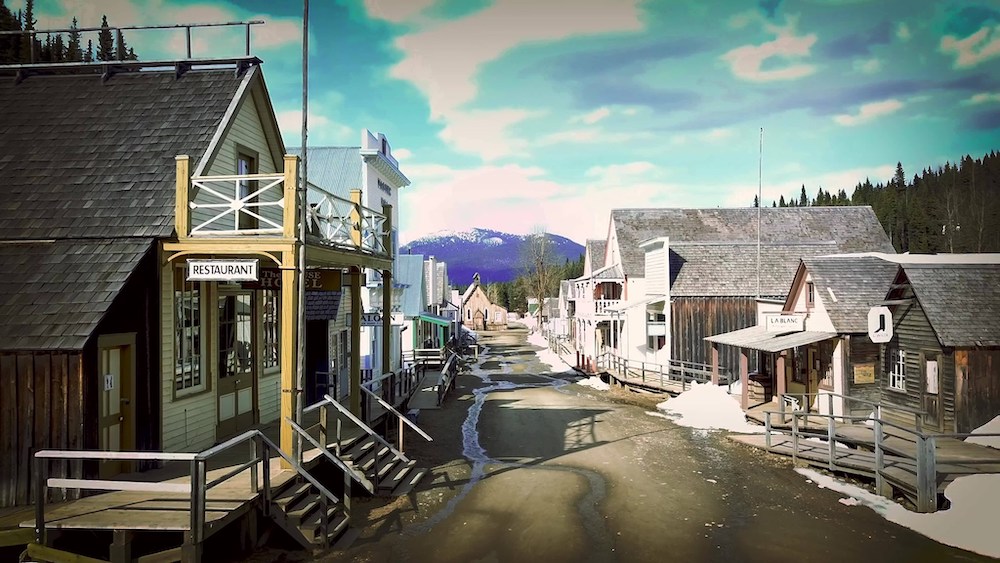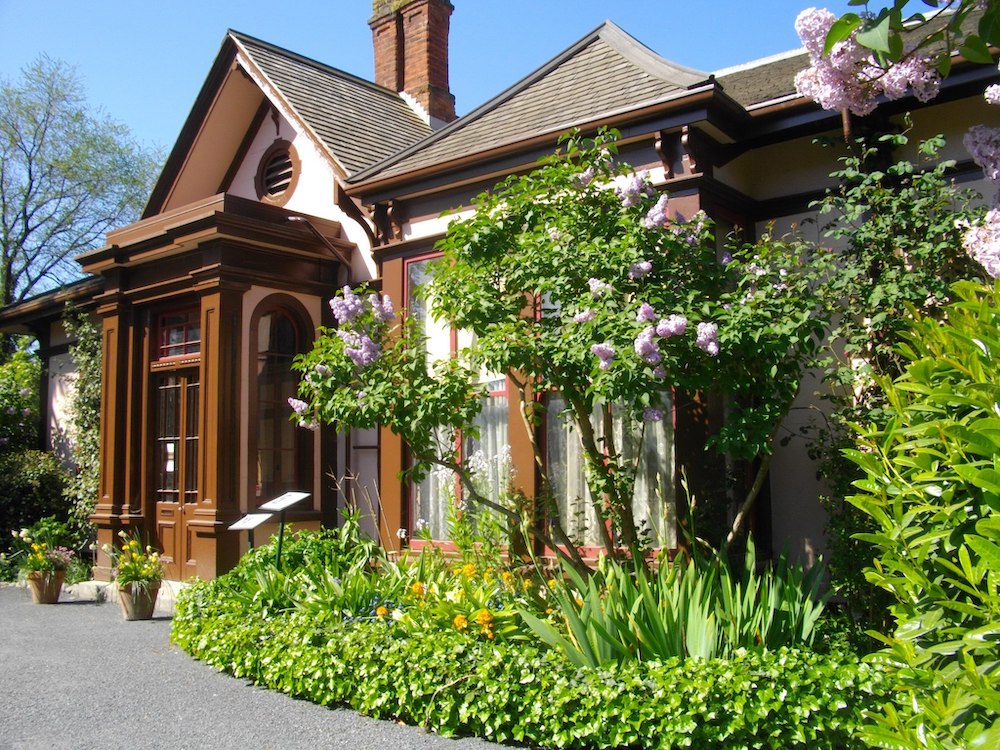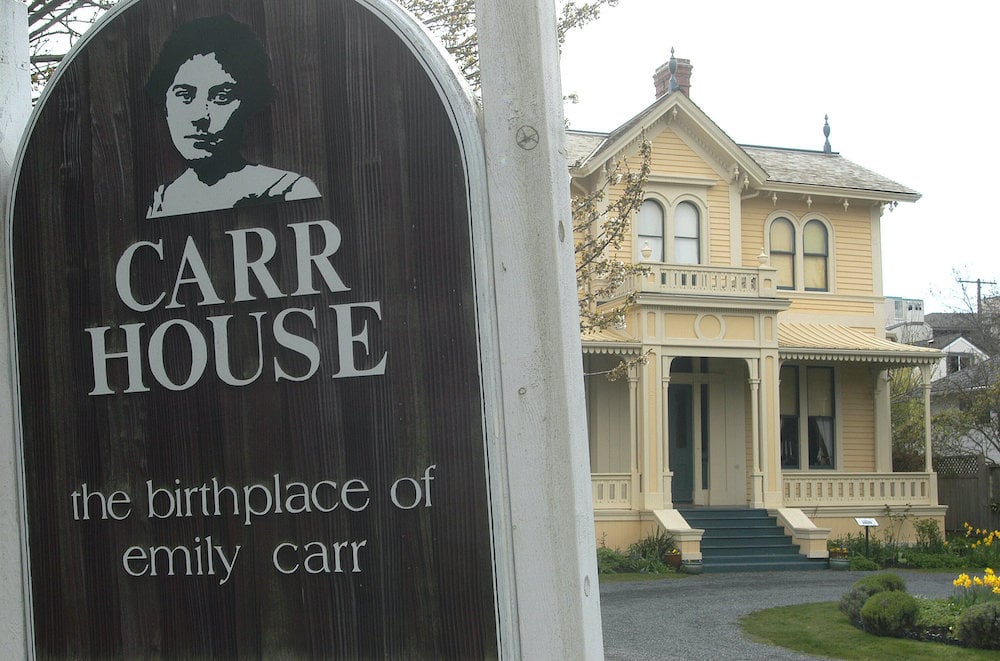Before answering the phone, Jan Ross was sorting through boxes of materials she and her husband accumulated during their 25 years of running Emily Carr House in Victoria.
“I’m going through honestly all these reports that have been done going back like 20-plus years, bringing in consultants who all say the same thing,” Ross said.
The house is where the famous artist, a contemporary of the Group of Seven, lived with her family as a child. It is a provincial and national historic site that’s normally open to the public, though like many other buildings, it’s been closed during the COVID-19 pandemic.
Successive consultants called for recognition that the people of British Columbia own Emily Carr House and other heritage sites across the province and should value and support them, Ross said.
“You need to invest in these places, you need to take care of them physically,” she said, “and you need to take the experts that you have in the field and listen to them.”
Sometimes the provincial government did listen, Ross said. There’s a picture from 2006 of her and the managers of heritage sites from across the province from a meeting with Stan Hagen, then the BC Liberal minister responsible. And some of the reports did lead to periods with more funding for maintenance and operating expenses, she recalled.
But it was never long before the government reverted to budget cuts and running the sites as cheaply as possible, she said.
The trough was after the 2001 election when the BC Liberal government’s “core review” concluded that heritage sites, all of them acquired by previous governments, weren’t part of the government’s core business and preceded to contract out their management to small groups, a structure that has left many of them short of funding and without the stability for long-term planning.
Ross, who’s also been involved in groups representing the sector, figures the government spent hundreds of thousands of dollars on reports from consultants over the years.
“If they’d only ever given us the funds, the funds they were spending on the consultants telling them the same things over and over, successive ministers,” she said.
Long-term stability out of reach
Ross and her husband retired at the end of March, just as the COVID-19 pandemic established itself in the province and schools, businesses and various services closed.
As with many other sectors, the pandemic has added to strains that have long existed for the province’s heritage sites, Ross said. “What’s going on with COVID has certainly heightened, from what I understand talking to colleagues around the province, all of these same underlying concerns.”

At Barkerville Historic Town and Park in the Cariboo, CEO Ed Coleman said the trust that manages the site has lost about $75,000 in revenue so far with some winter and Easter weekend activities cancelled.
The high season usually starts mid-May and ends in September, but already the summer opening has been postponed until June 18. Staff have been working with Northern Health and WorkSafeBC to meet requirements to open safely, and in early June the board will decide whether to further delay opening.
With 185 employees at peak and a key role in the Interior’s tourism economy, a region still recovering from extreme wildfire seasons, Coleman said there’s a need to balance the priorities of maintaining employment and keeping everyone safe. “We have so many people co-dependent on what we do here.”
In a good year, the site gets about 65,000 visitors, about 70 per cent of whom come from within Canada. It may yet turn out to be a busy year for visits from British Columbians with locals staying close to home, but there’s no way to be sure, Coleman said.
Barkerville qualifies for some pandemic help, including the federal government’s wage subsidy, Coleman said, but there’s been nothing to address the longer-term challenges.
Meanwhile, there are all the normal expenses of maintaining 125 buildings that were built in the 1800s on top of 10 metres of mine tailings. After heavy snowfall this past winter, Coleman is anticipating flooding, and the site recently spent $160,000 on flood prevention.
One thing that would help would be the stability of long-term agreements so that sites can be managed properly with an eye to the future, Coleman said. Barkerville’s current agreement with the provincial government expires in 2025 and the trust has asked to extend that to 2045, he said.

‘We were just getting started’
At Point Ellice House in the Rock Bay area of Victoria, the Vancouver Island Local History Society took over management in 2019. The house is one of the oldest in the city.
“We receive a very modest amount of operational funding from the province, but we’re expected to make up our shortfalls that result from that modest funding through visitor admissions, site rentals and events,” said Kelly Black, the site’s executive director and sole full-time staff member.
“It’s always been a struggle and we felt... we were just getting started and starting to build some momentum.”
All of the site’s money-making activities have been on hold since March, he said. Also, the volunteers who usually help in the 160-year-old house and its two acres of garden had to stop coming in.
Black said he’s been making the case that the site is a provincially owned heritage resource that contributes to the community and deserves to survive the pandemic, and he hopes the provincial officials he’s been talking to have been listening.
“So far, we are on our own,” he said. “We don’t qualify for [most of the] federal supports for a number of various factors, and then even though we’re a site owned by the province, the province hasn’t yet stepped forward with any increased operational funding to see us through this.”
He added, “If we don’t receive any additional support for operations, I’m not sure we’ll make it past 2020.”
Point Ellice House, which has a collection of 10,000 artifacts, gets $80,000 a year from the province, Black said. “It might seem like a lot, but we’re responsible for care and maintenance of the site as well as all of the bills and our staffing.” Hydro and utility bills are about $11,000 a year.
“Anyone who owns a home knows repairs on even a newer home can add up pretty quickly,” he said. “When you have one of the oldest houses in British Columbia, it needs care and when it doesn’t get the care it needs, it piles up over time.”
With the province committed to spend $1.5 billion on economic recovery, the government should keep in mind there’s plenty of work to do at the heritage sites it owns, Black said. “A small investment in these heritage sites really will go a long way, not only to extending the life of the sites... but also to contribute to the community.”
The society recently restored one of the gardens and is growing food for the Cool Aid Society, a local organization whose services include providing emergency shelter and supportive housing. It also works with teachers and caregivers to provide insight into B.C. history for students.
“Our whole approach has been refreshing and presenting new narratives about the site,” Black said.
The house was the family home for Peter O’Reilly, the head of a commission that during his time determined the size and location of some 600 First Nations reserves in the province. “At Point Ellice House that was not talked about previous to our taking over the site,” Black said.
The site had been known for its tea service on the lawn, which the new managers canceled since they felt it played up a romantic narrative of what the city was like in the Victorian era. “In my opinion, that’s part of the reason local people have not really been that interested in Point Ellice House,” Black said.
Recent exhibits have instead shone a light on the role families living in the house played in the colonization of B.C., he said.
“That goes right to the heart of truth and reconciliation and United Nations Declaration on the Rights of Indigenous Peoples. We non-Indigenous British Columbians need to know about this history, and we’ve worked very hard to put it front and centre for the visitor here at Point Ellice House.”
When the site reopens in July, with measures to allow for physical distancing, it will be with an exhibit on waste and water in Victoria, a story with connections to public health and to the treatment of people of Chinese descent in the city and to the role of Black Victorians in waste removal.
“By telling these stories and being supported by the province to tell these stories, we can initiate conversations where we can make connections between the past and the present,” Black said.
“The province needs to view its heritage resources, its provincially owned heritage resources, as an asset and places that can contribute to the community, rather than as a burden, which is really how they’ve been viewed for the past 20 years.”
He said he hopes the pandemic is an opportunity for the province and other levels of government to recognize that heritage sites matter and that a small investment in them will go a long way.
Responsibility for the provincially owned heritage sites belongs to the Ministry of Forests, Lands, Natural Resource Operations and Rural Development. Minister Doug Donaldson was unavailable for an interview.
The heritage sites have been transferred among ministries multiple times over the last two decades. As Ross, the former Emily Carr House manager, put it, “We’ve gotten lost in the shuffle for a very long time.”
Ross said that there were positive signs after the 2017 change in government and that she’s had good conversations with Finance Minister Carole James whose Victoria-Beacon Hill constituency includes Emily Carr House.
“We’ve had strong support from Minister James, but the reality is still the sites need to be invested in,” she said. “There needs to be a long-term sustainable plan for all of them, and we need to be part of the fabric moving forward so these assets are actually well-utilized by the people who own them.”
Instead there were budget cuts coming for all the provincially owned sites for the year that started April 1, she said, a fact that contributed to her husband and her deciding it was time to retire.
“It’s the people of B.C. that own these sites, and are they getting the benefits that they should?” asked Ross. “And if not, if it’s really not a priority for the public to own them, that’s fair. People have to make priorities all the time within government and without, but I don’t think most communities are aware how tight things are, how delicate the balance [is] and what the opportunities are that are being missed.” ![]()
Read more: Local Economy, Coronavirus, BC Politics

















Tyee Commenting Guidelines
Comments that violate guidelines risk being deleted, and violations may result in a temporary or permanent user ban. Maintain the spirit of good conversation to stay in the discussion.
*Please note The Tyee is not a forum for spreading misinformation about COVID-19, denying its existence or minimizing its risk to public health.
Do:
Do not: